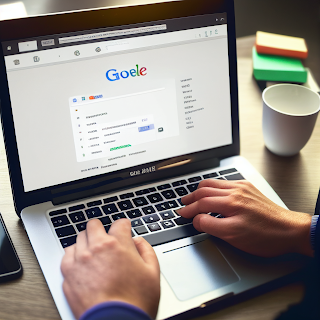 |
| A person - trying to index website |
You've launched your website, but it's not appearing on Google search results. It can be frustrating, but don't worry, you're not alone. In this blog post, we'll explore 5 common reasons why your website might not be showing up on Google search and provide solutions to help you get noticed.
Are you wondering why your website is not showing up on Google search results? It's a common problem that many website owners face. Despite investing time, effort, and resources in building a website, it can be disheartening not to see it on the first page of Google. Fortunately, there are many reasons why your website might not be showing up on Google search, and most of them are fixable.
Your website is new
If you've recently launched your website, Google might not have had time to crawl and index it. It can take a few days, weeks, or even months for Google to discover and index your website. To speed up the process, you can submit your website to Google's Search Console and request a crawl.
Your website is not optimized for search engines
Search engine optimization (SEO) is the process of optimizing your website to improve its visibility on search engines. If your website is not optimized for search engines, Google might not be able to find it. To optimize your website, you should focus on keywords, content quality, website structure, and user experience.
Your website is not mobile-friendly
More than 60% of online searches are now performed on mobile devices. If your website is not mobile-friendly, Google might not show it to mobile users. To ensure that your website is mobile-friendly, you should use a responsive design that adjusts to different screen sizes.
Your website has technical issues
Technical issues such as broken links, slow loading times, or duplicate content can affect your website's search engine ranking. To fix technical issues, you should perform a website audit and identify and fix any issues that might be affecting your website's performance.
Your website has low-quality backlinks
Backlinks are links from other websites that point to your website. If your website has low-quality backlinks from spammy or irrelevant websites, it can affect your search engine ranking. To fix this issue, you should perform a backlink audit and disavow any low-quality backlinks.
In conclusion, if your website is not showing up on Google search results, don't panic. It's a common problem that can be fixed. By following the tips outlined in this blog post, you can improve your website's search engine ranking and get noticed by potential customers.

Comments
Post a Comment